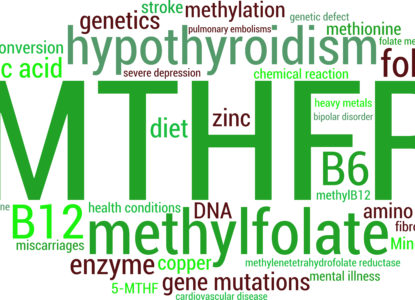How B Vitamin Levels During Pregnancy Impact Your Baby’s Heart Health

Contents
Congenital heart disease (CHD) is a term used to describe several different conditions that affect the heart from birth. These heart abnormalities occur during the development of the baby’s heart during pregnancy, before the baby is born. CHD is estimated to affect 1 in 120 babies born in the United States1, making them the most common birth defect that occurs.
See also: CDC information on CHD
Most forms of congenital heart disease have no known cause. Studies examining the issue have left much to be desired2… until now.
Previous homocysteine studies offered a clue
It is well known that folate is a crucial nutrient required for embryonic development and that maternal folate supplementation is required to protect against neural tube defects.
Previous studies have shown that when measuring homocysteine, vitamin B12, and folate concentrations in women with and without CHD-affected fetuses, women with CHD-affected pregnancies had higher plasma homocysteine concentrations than women with unaffected pregnancies. 3,4,5 What does homocysteine have to do with folate?
- Well, high homocysteine concentrations may be caused by lower folate and vitamin B6 levels and are often used as a marker for increased risk of vascular complications.6
- Red blood cell (RBC) folate reflects the long-term folate status and is the gold-standard method recommended by the World Health Organization (WHO).7
- Importantly, no prior studies have measured this biomarker in the critical time window before or close to the time when fetal heart development occurs.
Study: Maternal folate levels predict CHD risk
A nested case-control and mendelian randomization study published in the Annals of Internal Medicine looked at 197 mothers of offspring with CHD and 788 mothers of offspring without CHD from 29 maternity institutions in 12 districts of Greater Shanghai, China.8
Researchers measured RBC folate levels either before conception (approximately 6 months before) or during early pregnancy (approximately 3 months after conception), and offspring were monitored for CHD using ultrasound during the second trimester, by neonatal screening at birth, and through routine childcare examinations.
Mothers were also assessed for the MTHFR C677T genetic variant, which is a variant that is associated with folate metabolism that causes a 10% to 35% reduction in plasma folate levels.
Based on the primary analysis using the MTHFR-C677T variant as the instrument variable, the case patients had lower median maternal RBC folate concentrations than control participants, which was expected.
Also, higher maternal folate levels were associated with a lower risk for CHD. To quote the study authors about the significance of their findings:
Higher maternal RBC folate is associated with reduced offspring CHD risk. For primary CHD prevention, higher target RBC folate levels than currently recommended for neural tube defect prevention may be needed and warrant further study.
https://doi.org/10.7326/M22-0741
It is largely unknown, but the results from this study have caused the authors to speculate the following8:
A reduction in folate may affect neural crest cells, which are a group of cells in the fetus that develop into several tissues. These cells have a demand for folate, particularly during the first 12 weeks after conception.
Evidence suggests that these neural crest cells have been traced and documented in several other parts of the developing heart, including the inlet of the heart and the aortic arch. Limiting folate transport to embryonic tissues through nutritional folate deficiency or genetic alternations may thus result in the development of CHD.
The pre-conceptional use of folic acid has not increased, despite its importance before and during pregnancy.
You would think that by now, with all the research that has been conducted, women would be more aware of the importance of folic acid during pregnancy. Alarmingly, this does not seem to be the case.
The authors of the ground-breaking research that I discussed earlier conducted a cross-sectional study to determine whether the recommended dosage of folic acid was being taken before pregnancy.9 They found that only 42.6% of women took the recommended 400 mcg of folic acid daily before pregnancy. What was more worrying was that the RBC folate levels of women preparing for pregnancy were, on average, 490 nmol/L, which was 90.1% below the 906-nmol/L cut-off.
The Bottom line
This study has provided convincing evidence on the importance of taking folic acid prior to conception, not only to prevent neural tube defects but to also prevent congenital heart defects. It would also be helpful to know your MTHFR status before you decide to conceive so that you can discuss the optimal dosage of folic acid (or methylfolate) you should be taking with your health care practitioner.



